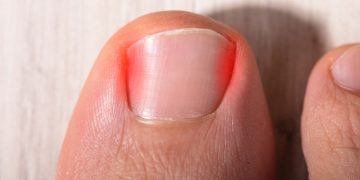Unfortunately, there is no cure for Irritable bowel syndrome. However, with little changes to your diet, and lifestyle you can find significant relief.
For normal people, when the food travels through the digestive system it gets propelled by uniform wavelike contractions of the intestinal muscles. But for people with irritable bowel syndrome, these contractions are either too fast or too slow leading to diarrhea or constipation respectively.
Apart from diarrhea and constipation, people with IBS also experience elevated levels of bloating, abdominal pain, and gas.
It is still unknown why people develop irritable bowel syndrome. However, health experts now know hypertension or elevated stress levels, and certain food can aggravate the condition.
IBS is more common in women when compared to men. In fact, women are twice as likely as men to develop the condition.
If you are someone who is dealing with the problem, combine your present relief measures with one of the alternative remedies mentioned below and follow the one that works for you.
Tackle your stress
Although the exact reason for Irritable Bowel Syndrome is unknown, what doctors know for sure is the connection between stress and IBS flare-up.
There are many ways to tackle and short-circuit your stress, and some of the best ways are meditation, yoga, and a simple breathing exercise.
Maintain a journal or keep a diary and note down your IBS symptoms, your daily activities and also how severe your symptoms are for the particular day.
After a few days try to go through the journal and find out if there are any links between your activities and the severity of the symptoms. Once you spotted out the things that make your symptoms worse, then you can plan out a strategy to tackle the problem.
Minimize fried and spicy foods
Fried foods, oil, dairy, meats, and other fat-rich foods can stimulate your intestines and make it to contract vigorously. This can lead to diarrhea and abdominal pain.
Spicy foods are also known to cause diarrhea on people suffering from IBS. This is because it can make your colon to go into spasms. So, it is better to minimize the intake of capsaicin or hot peppers.
Avoid caffeine intake
If you love caffeine-rich beverages like coffee, tea, or flavored drinks, then its time to cut down on its consumption.
Caffeine can irritate the intestines and make your symptoms worse.
Avoid flatulence inducing foods
Diarrhea and constipation are not the only two symptoms that can make your problem worse. Flatulence and abdominal gas are another couple of problem you need to tackle as well.
Avoid foods that can cause flatulence and gas. These foods include cabbage, brussels sprouts, and broccoli.
Avoid chewing gums
If you have the habit of chewing gums, then it is a better idea to give it up. Most chewing gums are loaded with artificial sweeteners which include sorbitol and mannitol.
Both these compounds come hard on your digestive system, and it also has a laxative effect. When the good bacterias in the colon finally manage to break it down, it results in gas and diarrhea.
Avoid Smoking
Nicotine present in tobacco is one of the major contributors for IBS flare-ups. Additionally, when you smoke, you swallow air and this might get into your gut and lead to abdominal pain and gas.
Increase your fiber intake
There are two types to dietary fiber, soluble and insoluble.
Soluble fiber absorbs the liquid in the intestines and helps to prevent diarrhea. Some of the good sources of soluble fiber include beans, oatmeal, apples, strawberries, and grapefruit.
This type of fiber intake is highly recommended if your main problem is diarrhea. For some reason, if you cannot get enough soluble fiber through the foods, you can try a daily supplement of psyllium, the main ingredient in dietary fiber supplements like Metamucil.
Unlike most other chemical-based laxatives, psyllium is very safe for longterm use. Follow the label for dosage recommendation.
If constipation is your main problem, then you should consume insoluble fiber, which is commonly found in whole wheat, bran, green salads, and whole grains.
Insoluble fiber will add more bulk to your stools and make it easily pass through the intestines.
Note of caution: If you have not consumed enough fiber before then try to increase the intake gradually. Including too much fiber in your diet, all of a sudden can lead to bloating, and abdominal cramp.
You can start with consuming around 8 to 9 grams of fiber a day, and gradually increase the intake by 3 to 4 grams every day until you reach the recommended limit of 30 grams a day.
Another important tip is to drink enough water when you consume fibers. Water will enable smooth transportation of fibers through your intestines and make it work more effectively.
Avoid medications for constipation or diarrhea
It is very natural to go for medications or over the counter solutions when you are suffering from constipation or diarrhea. However, these medications must be avoided when you have IBS. These medications can make swing vigorously between constipation and diarrhea.
Eat Smaller Meals and Eat Slowly
Eat smaller meals more frequently overeating two or three large meals each day. Consuming too much food at once can overstimulate your digestive system and intestines.
Also if you eat your foods too fast, you will tend to swallow more air into your stomach, this can lead to intestinal gas and worsen your IBS.
Eat Yogurt
Diarrhea can not only drain the essential mineral salts in your body, but it can also flush out and destroy the good bacterias in the gut. When you run short of good bacterias in the colon, it can pave way for the uncontrolled increase in the number of bad or harmful bacterias.
One of the best ways to ensure healthy levels of good bacterias in the gut is to eat yogurt every day.
You need to eat a variety that contains live and active bacteria. Try to consume it along with your meals at least once a day.
Drink peppermint tea
Peppermint herb will relax your intestines, reduce abdominal gas, and spasms. Make a tea out of the peppermint herb and drink it at least once a day.
Alternatively, you can also consume peppermint oil capsules which have a similar effect. Take one or two capsules three times a day, before or after your main meals.
Drink ginger tea
Ginger tea is one of the popular folk remedies for many digestive problems including IBS. Chop it into small pieces and add a teaspoon of it into a glass of hot boiling water and let it steep for 10 minutes. After steeping it for 10 minutes, let it cool down and filter out the ginger pieces and drink the extract.
You can also make use of ginger tea bags if you are too busy. Drink up to four cups of ginger tea a day for best results.
Exercise daily
Try to include at least 30 minutes of exercise every day. A simple noncompetitive exercise like walking can do the trick.
Exercise will make your body to release a type of feel-good hormone called endorphins, which makes your digestive system and other internal organs smoothly.








